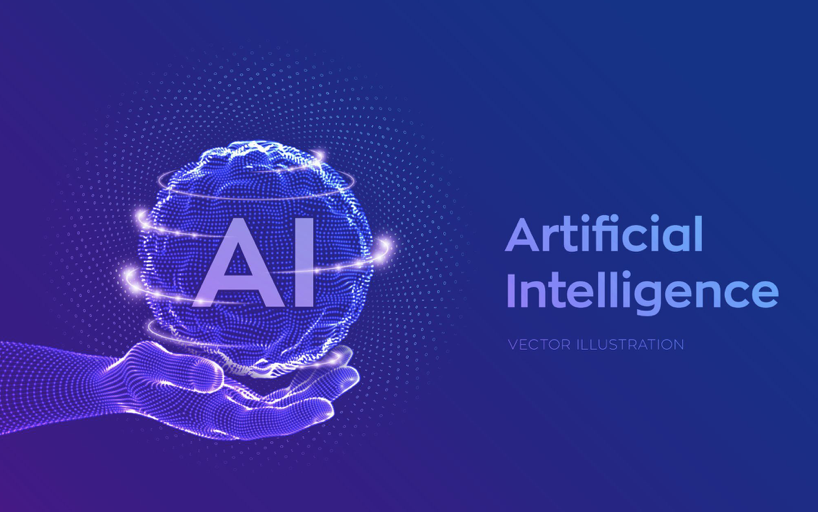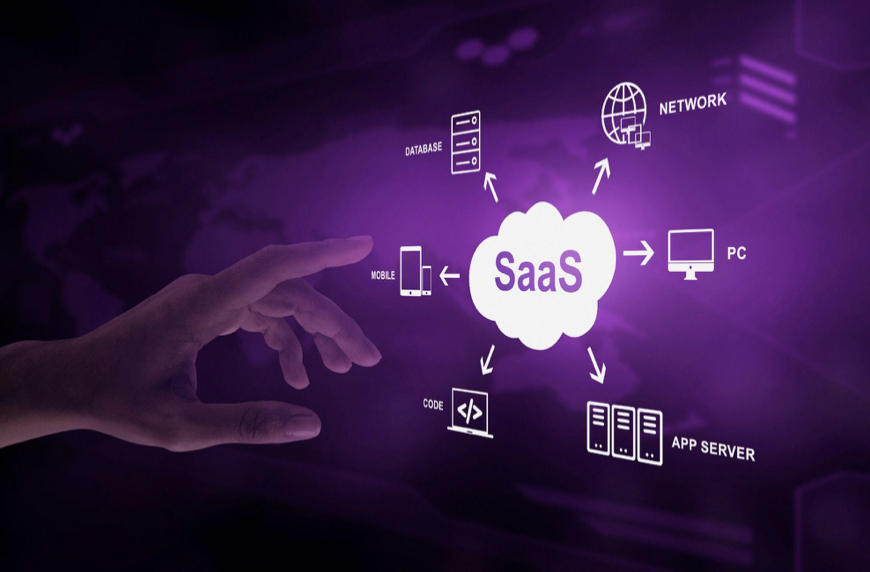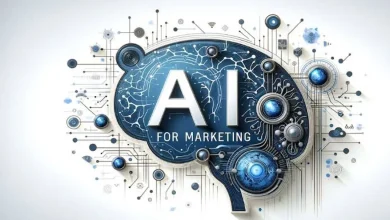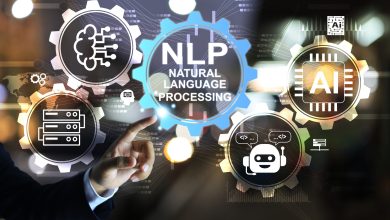Imagine that your in-house development team is receiving a dozen support tickets daily, and agents are taking longer to respond because previous queries need to be answered first. As a result, customers got agitated!
You got the idea of integrating AI-powered software as a SaaS solution instead of hiring more human workers.
The results?
80% routine queries regarding password resets, refunds, and tracking requests are resolved automatically. Moving forward, the in-house team can focus on other primary tasks, and your SaaS development services can scale effectively.
From sales to marketing and healthcare to retail, AI is redefining how SaaS businesses operate. SaaS platforms can integrate AI to automate tasks, improve the customer experience, and increase revenue.
In this blog, we will reveal the reasons why AI is becoming the cornerstone of success for SaaS platforms. Before that, let’s have a brief introduction to artificial intelligence in SaaS
What is AI in SaaS?
This refers to the AI-powered integration, including NLP, ML, and predictive analytics with a cloud-based software product. As a result, it includes improved functionality, streamlined operations, and provides deeper insights.
AI enables SaaS companies to go beyond traditional feature sets and offer data-driven experiences. For instance, AI can differentiate users based on their behavior and pricing plans and proactively resolve support issues.
5 Reasons Why AI is the Backbone of SaaS Platforms
Integrating AI into a SaaS platform delivers significant benefits across all stages of the product lifecycle. These benefits include:
a) Data-Driven Decision
Data is the new fuel in today’s competitive business landscape. AI tools combined with advanced data engineering solutions can analyze large-scale data, uncover new patterns, and derive real-time insights. By leveraging AI-driven analytics, organizations — regardless of size — can make informed decisions more quickly, assess evolving market trends, and capitalize on new opportunities before their competitors.
b) Enhanced Operational Efficiency
The applications of AI streamline operations and enhance efficiency across multiple business functions. Through intelligent algorithms and automation, it can optimize processes, minimize manual intervention, and decrease the number of erroneous sessions. As a result, it enables cost savings, enhances productivity, and reallocates resources.
For example, ML-based forecasting helps allocate cloud resources based on traffic. Another example is fraud detection and billing automation, which reduces financial risk.
c) Greater Innovation and Agility
Innovation is the differentiator, and it helps in the toughest time of the business survival period. Here, AI provides a solid foundation for innovation by enabling experimentation, rapid prototyping, and iterative development. AI enables organizations to innovate across multiple domains, increasing agility to stay ahead of the curve.
d) Mitigated Risk
With the increasing number of cyber threats, safeguarding customer information has become a top priority. AI offers advanced options for threat detection, fraud prevention, and anomaly detection. Doing so helps organizations mitigate risks, safeguard sensitive information, protect against threats, and simplify compliance.
e) Smarter, Personalized Customer Experience
AI helps SaaS platforms deliver highly personalized user journeys by understanding behavior, predicting needs, and offering real-time recommendations. With AI chatbots, automated support, and proactive issue detection, customers enjoy faster responses, smoother interactions, and a better overall experience — boosting satisfaction and retention.
What Technologies are Used to Enhance the Capability of the SaaS Platform?
AI-driven SaaS Platforms use multiple technologies to foster the working methodologies of their applications. Here are some of the technologies used to reshape the SaaS industry:
1. Natural Language Processing
The bedrock of SaaS platforms is NLP, which enables SaaS products to interpret, process, and respond to human language. This technology allows software providers to deliver a conversational experience for customers. All the natural and human-like interactions improve the overall communication.
2. Machine Learning
ML allows SaaS platforms to learn from real-time information. Therefore, the platforms can detect patterns, optimize processes, and predict outputs without manual programming. Moving forward, businesses can unlock meaningful insights, act quickly, and improve overall efficiency.
3. Generative AI
Gen AI uses advanced AI models to generate original outputs, including images, text, video, and code. For SaaS platforms, this technology allows faster content creation. Also, it accelerates the software development process and enables chatbot responses in complex customer service scenarios.
4. Predictive Analysis
This allows SaaS platforms to assess patterns, forecast trends, and predict future outputs. Predictive analysis combines advanced algorithms with historical data to understand customer churn and product demand. Also, it provides valuable insights to optimize product roadmaps.
5. Intelligent Automation
The combination of intelligent automation and rule-based automation enables the SaaS platform to manage complex workflows, ensuring processes run smoothly. Additionally, AI-powered SaaS platforms can synchronize data across multiple tools, automate customer onboarding steps, and route support tickets without requiring manual input.
What are the Use Cases in SaaS?
In this dynamic business landscape, the blend of technology and innovation enables a company to survive. On that note, AI’s versatility enables SaaS platforms to operate more efficiently and deliver smarter results. Here are some impactful ways SaaS platforms are applying AI:
1. Customer Support Automation
Forget those days when an agitated customer called and waited in the queue without having a proper resolution. With AI-powered chatbots, the customer support team resolves simple issues, personalizes customer interactions, and delivers round-the-clock responses.
2. CRM and Marketing
AI-powered predictive analytics and machine learning allow businesses to assess customer needs, automatically score leads, and segment audiences. Therefore, it helps with smarter campaigns, boosted conversions, and efficient pipelines without manual work.
3. Financial SaaS
SaaS platforms for financial services leverage AI for critical functions such as risk assessment and fraud prevention. Artificial intelligence can detect anomalies, assess credit risks, and flag potential fraud more accurately than manual reviews. With the support of custom fintech solutions, the cloud software providers can function seamlessly while improving customer trust.
Take Your Business to the Next Level with AI
Artificial intelligence isn’t a buzzword anymore. Instead, it’s the bedrock of efficiency, innovation, and competitive advantage that drives a business towards success. If you believe that you can turn your business into a success story, it’s the right time to start with strategies so that you can take your SaaS business to new heights!
An AI development company can make your journey smoother by assisting you with the process of implementing AI in your existing SaaS applications. Their expertise will enable your team to work proactively, while concentrating on the primary tasks.
Author Name: Sanjay Singh Rajpurohit
Author Bio: Sanjay Singh Rajpurohit is the visionary behind Technource, a top IT firm offering global solutions in AI, mobile apps, and custom software development. With a strong foundation in teaching physics, chemistry, and math, he brings a deep understanding of process, clarity, and mentorship—qualities that now define his leadership and business approach. In June 2024, he was honored with the “Mister Ahmedabad Personality” title, recognizing both his presence and impact beyond the tech world.







